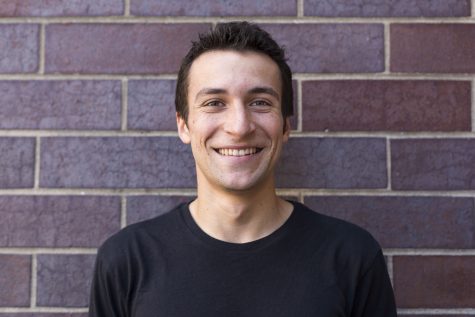NYU faculty provides education for inmates
Nikhil Singh, left, will head the prison education program. Bryonn Bain, right, will teach classes and is the Director for Public Affairs for the Prison Initiative.
March 4, 2015
NYU launched its Prison Education Program to give those incarcerated at the Wallkill Correctional Facility access to a college education, the university announced Monday. The program, backed by a $500,000 grant from the Ford Foundation, currently has 36 incarcerated individuals enrolled.
Wallkill Correctional Facility is a medium security prison for males located in the Hudson Valley. Rolled out for the Spring 2015 semester, PEP currently has two courses available with the possibility of an additional four during the summer of 2015. Following their release from prison, students may choose to continue their education at NYU or apply their credits to another university.
CAS Dean Gabrielle Starr and Gallatin Dean Susanne Wofford were approached by faculty members with the idea three years ago. Starr said those involved with the program feel that it is a way to give back to the people of New York.
“As it turns out, it is the single best way to give people access to a life when they get out that doesn’t involve going back to prison,” Starr said.
Students can currently choose to enroll in either critical perspectives on justice through creative writing or literary analysis and the politics of interpretation. Upon satisfactory completion of the program’s coursework, students receive an Associate of Arts Degree from the university.
George Shulman, a professor of political theory in Gallatin and a co-teacher of the critical perspectives class in PEP, said there is a wall between enfranchised people and the millions of incarcerated people, all of whom deserve an education.
“I’m a teacher, so for me, it feels very organic to use my teaching to break down that wall,” Shulman said. “Teaching the prison class feels very much a part of my life as both a teacher and a scholar.”
New York Gov. Andrew Cuomo proposed an initiative in early 2014 to give prisons around the state taxpayer-funded college courses. Following heavy opposition from lawmakers, the plan quickly died. However, New York colleges have been partnering with the New York State Department of Correction and Community Supervision to provide higher education for inmates voluntarily.
Nikhil Pal Singh, an associate professor of social and cultural analysis and faculty director of the program, said the program is a way the university can positively impact the local environment.
“You have a criminal punishment system that is built on and is reinforcing deep race and class inequities in our society,” Singh said. “We thought that it was an opportunity to re-engage NYU in social justice education work in a way that was immediately relevant to our city.”
Starr added that one of the most fascinating things to her was how many NYU faculty members were already academically engaged with incarcerated individuals.
“If you look across what NYU means, a lot of it has been being actively engaged and trying to help people take charge of their lives again,” Starr said. “In some ways, all of the pieces were already there.”
A version of this article appeared in the Wednesday, March 4 print edition. Email Alex Bazeley at [email protected].

























































































































































